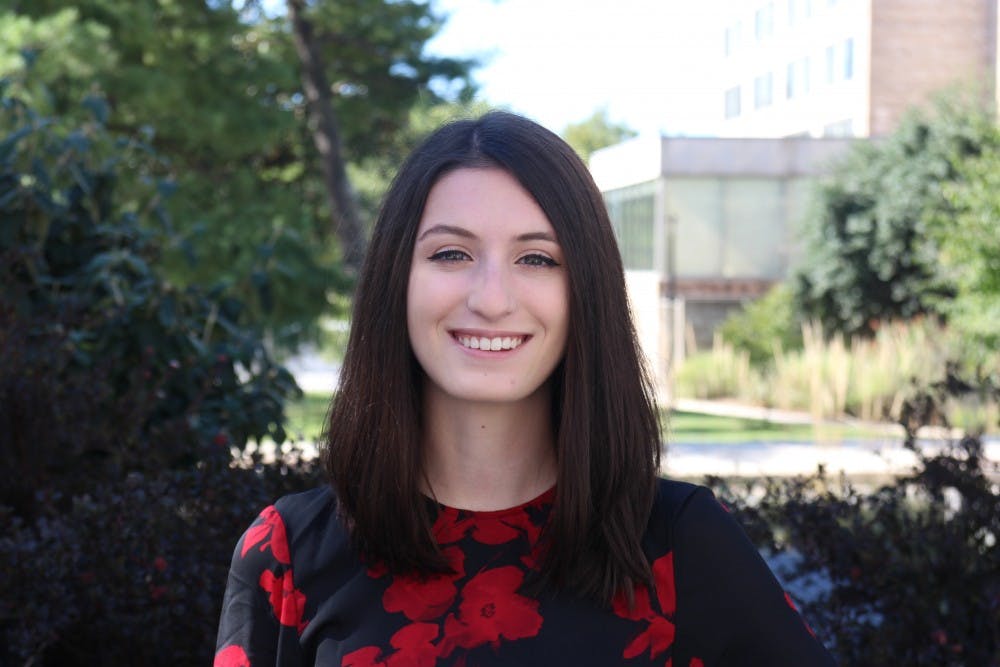Treat others the way you want to be treated.
The powerful -- yet elusive -- rule begins in elementary school. Held in such high regard, the rule is deemed the golden rule, and in Olympic terms, that makes it the first and most important.
If we preach it so much, why is the rule often underused? Where has the kindness gone nowadays? Today, the news is riddled with hate and bigotry. We often cannot go a single day without hearing about hate crimes and insensitivity toward underrepresented groups. It does not help that our current presidential administration is not promoting kind values, either.
I believe we are not inherently bad creatures. However, I do think we are inherently self-centered. It’s okay. I am, and you probably are, too. It’s natural. Too often the word is defined negatively, but there is no harm in caring for your own well-being. However, acknowledging that this occurs is not enough. Action is required to bring back kindness.
To better understand what I mean, we need to dissect what it means to “treat others the way you want to be treated.” The one word that drives this rule forward is “want.” The rule does not state “treat others the way others have to treat you,” but rather the rule is giving you a choice. “Want” is controlled by desires and typically has a positive connotation attached to it. For the rule to work, you need to want to be treated in a certain way.
Let’s say, for example, you don’t like it when people touch your personal belongings without permission, and thus you don’t touch others’ personal belongings without asking first. You demonstrate an action you want in hopes that others will emulate it.
Although it seems simplistic, this ideology is not perfect. Words on paper are much more appealing than actions. We may think we are properly conveying what we want by not doing the things we don’t agree with, yet without ever explicitly saying what you do and do not like, it isn’t fair to assume others will just pick up on our actions. The rule’s flaws grow from not everyone possessing the same set of morals and wants. You can’t expect others to have an intuition to be kind to you. To reiterate, humans are self-centered. What would they be gaining from taking time to make you happy if you just make them sad?
Let’s now say that you want people to invade your personal space -- holding your arm as they speak to you, or talking close to your face -- because you think it shows investment in a conversation. Because of this, you may not see the harm in invading others’ personal space. Someone else may not like it when you enter their personal bubble, and therefore feel like you are violating their wants.
In this case, the rule’s validity is challenged because you’re technically treating others the way you want to be treated. This is enough of a disconnect to crumble my argument.
Don’t despair. I have good news. Kindness is not dead, but it’s not thriving either. Even better news is that it can be revived. We can make kindness happen.
Treat others the way you want to be treated is a two-sided story consisting of compromises. Learning how others want to be treated should be a normalized conversation. People should not be harassed for wanting to be treated a certain way. If someone does or says something you don’t like, tell them why you didn’t appreciate it and ask that they try to be more sensitive next time. By doing this, you are encouraging the inverse to be true. I can’t promise you others will be responsive to the conversation, they may continue doing what you disagree with, but remember that you are the one who is making a conscious effort towards kindness. By ingraining this in our society, perhaps people will be more aware of their personal impact on others.
According to the Random Acts of Kindness Foundation, kindness is teachable and contagious.I would like to propose an amendment to the golden rule: Openly talk about how you want to be treated and act accordingly as others talk about how they want to be treated. With this alteration, we will be creating a forever trend of kindness that proves to everyone that compassion is still possible.





